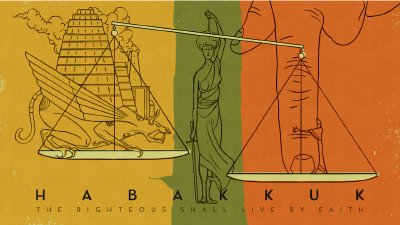What Makes A Feast?
November 19, 2023 • Rev. Joshua Smith • Habakkuk 3:16–19
We’re wrapping up a whole semester of sermons haunted by the prophecy of Habakkuk. His potent and provocative image of a world “filled with the knowledge of the glory of the Lord” has influenced our own vision statement: “Saturating our neighborhoods with feasting families who tell a better story by setting tables of God’s grace for the lonely.”
So, as our energy turns toward family holidays over the next several weeks, I think it would be helpful for us to consider just what exactly elevates a shared meal to the status of a feast. There are three main features that overlap to form a feast – focuses that make sure our holidays are holydays:
Love – Genuine affection for and self-denying service of both family and guests.
Luxury – Gratuitous sensual provision, far beyond what is necessary for survival.
Liturgy – Grateful acknowledgement of God’s glorious story in every event and detail.
All three of these features are needed for a Biblical feast, and to neglect one or two is to miss out on the formative practice altogether. We may be more naturally bent toward one or two of these, but it takes all three to keep the feast. When we neglect an aspect, we end up with some of the malforming traditions that we see Jesus rebuke in the gospel of Luke:
Asceticism - Liturgy and love without luxury means we’ve not tasted and seen (https://stpatrickpres.us4.list-manage.com/track/click?u=ba3413bb6fa020132a4bc21a5&id=76cf838183&e=b77c6e6023)
Epicureans - Luxury and love without liturgy means we’re sensuous idolaters (https://stpatrickpres.us4.list-manage.com/track/click?u=ba3413bb6fa020132a4bc21a5&id=19645f3db1&e=b77c6e6023)
Pharisees - Luxury and liturgy without love means we have nothing (https://stpatrickpres.us4.list-manage.com/track/click?u=ba3413bb6fa020132a4bc21a5&id=5a83b58e77&e=b77c6e6023)
Only by remembering the cross, that is, by reflecting and acting on the sacrificial nature of each of these elements, can we be drawn into the center; lifted up to the mountain of the Lord.
Let me assure you, this is not an optional add-on for seasons of plenty. You’ll need this.
The urgency really hit home for me last week as I retreated with some close pastor friends. Our time culminated in a unique culinary experience that I can only describe as sublime. We got to stand with the chef and even participate in his priestly work, and then he actually sat down to enjoy his phenomenal, savory craftsmanship with us.
Several in our party knew that his family had been grieving a terrible tragedy, but that night he shared the horrific extent of the injustice. We found ourselves in a strange place, eating a phenomenal meal while bawling our eyes out. The lines between conversation and prayer wavered continuously. Toward the end of the night, he said, “This is why I cook. I’m wagering my life on the belief that what happens at the table is truer than the darkness outside.”
We all knew that meal was a holy moment. If any part of it had been lacking – the genuine love we have for one another, the gratuitousness of food and drink, or the grateful acknowledgment of God’s sovereignty in it all – it simply could not have been the gift that it was. He had been in a wilderness, and moments like this were the means of grace he (and we) desperately needed to make it through. To rejoice.
This Sunday, we’ll wrap up our study in Habakkuk with a similar sentiment. The prophet, with full knowledge of Israel’s impending judgment at the hands of savage idolaters, doubles down on the joy of the Lord. I know of no more formative practice for shaping our hearts for that kind of joy than to keep the feast. So, I hope you can find ways in the weeks to come, whether modest or epic, to invest in just a bit more liturgy, love, and luxury for your tables.






